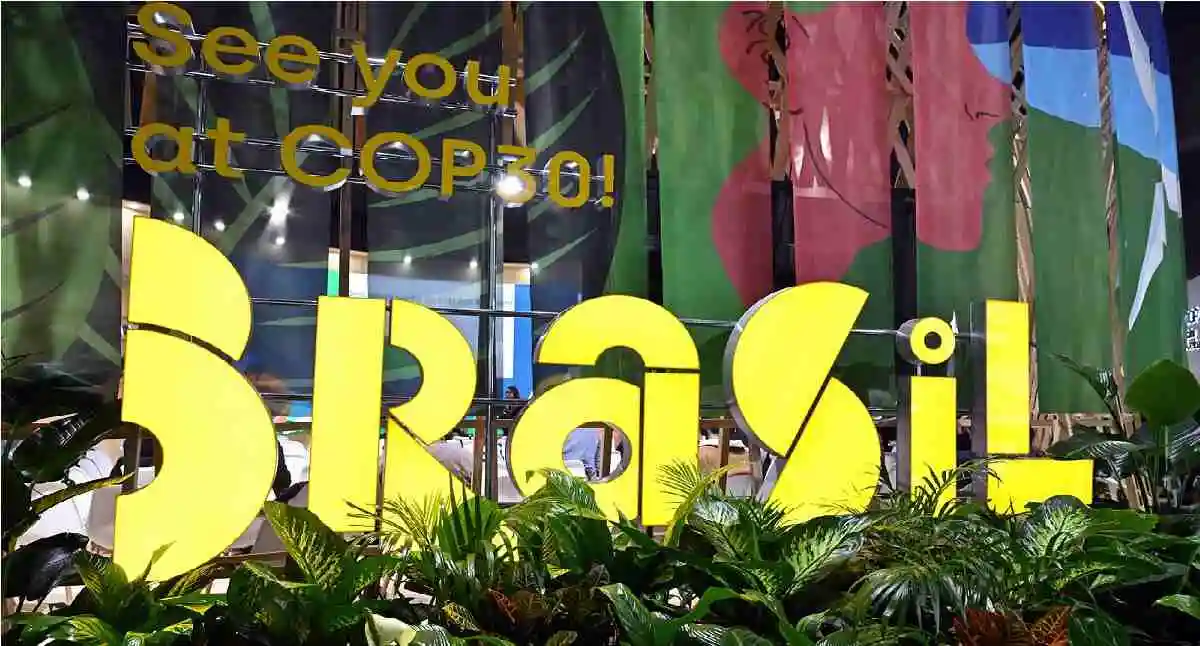Brazil stands at a crossroads as it gears up to host COP30 in Belém: President Luiz Inácio Lula da Silva’s administration touts record-low Amazon deforestation, yet it’s greenlit exploratory oil drilling at the Amazon River’s mouth—a move critics slam as trading green lungs for black gold. With deforestation dipping 11% to 5,800 square kilometers in the year to July 2025, the nation’s eco-credentials shine. But Petrobras’ push into the Equatorial Margin, potentially unlocking reserves worth billions, raises alarms over spills threatening mangroves, manatees, and Indigenous lands. As global eyes turn to Belém for climate breakthroughs from November 10-21, 2025, this paradox fuels debate: Is Brazil prioritizing oil riches over planetary health?
The Deforestation Triumph:
Lula’s return in 2023 ignited a green revolution, slashing Amazon deforestation from over 10,000 km² in 2022 to around 4,200 km² in 2024—a 58% plunge. Fresh 2025 figures confirm the momentum: An 11% year-on-year drop through July, with just 5,800 km² cleared so far. UN assessments echo this, noting Brazil’s average annual forest loss halved to 2.9 million hectares from 2015-2025 compared to earlier decades.
These gains stem from reinstated penalties on illegal logging, reactivated Amazon Fund investments, and Environment Minister Marina Silva’s crackdowns—yielding Brazil’s biggest emissions drop in 15 years last year. Yet, the oil nod to Petrobras in October 2025 flips the script. The Equatorial Margin, 500 km off the Amazon Delta, eyes vast reserves that could pump €46 billion into coffers and spawn 350,000 jobs.
Risks loom large: IBAMA’s own reports flag threats to endangered manatees, the world’s largest mangrove belt, and coastal communities including three Indigenous territories and quilombola lands. A spill here could devastate fisheries and biodiversity, indirectly fueling land grabs that reverse deforestation wins. Activists call it “sabotage,” arguing new drilling undercuts COP30’s forest focus.
Brazil’s Green vs. Black Gold Balance Sheet
| Metric | 2024 Baseline | 2025 Update | Trend Impact |
|---|---|---|---|
| Amazon Deforestation | 4,200 km² | 5,800 km² (YTD July, -11%) | Positive: Halved since 2022 |
| Oil Production | 3.4M bpd | 3.9M bpd (Aug, +16.5%) | Surging: Record Q3 exports |
| Emissions (Energy) | 490.6M tonnes CO2 | Projected +13.7% by 2050 | Negative: Oil offsets cuts |
| Equatorial Reserves | Untapped potential | €46B revenue est. | High-risk economic booster |
Data from October-November 2025 trade and environmental trackers.
Brazil’s saving trees at a record clip, but oil ambitions could torch those efforts if accidents strike or demand surges illegal clearing.
Is Oil More Important to Brazil Than Climate?
Lula’s unapologetic: “Is it contradictory? It is. But as long as the energy transition isn’t solving our problem, Brazil needs to make money from this oil.” With crude overtaking soy as Brazil’s top export in 2024 (13.3% of total), oil funds the €330 billion green shift—including 89% renewable electricity. August 2025 output hit 3.9 million barrels per day, up 16.5%, with Q3 exports smashing records amid Petrobras’ 18.4% production surge.
Projections paint a peak-and-plunge: Production climbs to 4.4 million bpd by 2034 before declining as reserves dwindle, sparking government panic over “energy sovereignty.” Energy Minister Alexandre Silveira hails the Margin as a responsible frontier, but scientists counter: New fields lock in emissions for decades, clashing with net-zero pledges.
The math stings—energy sector CO2 could jump 13.7% to 558 million tonnes by 2050, undermining 59-67% cuts. Agribusiness, emitting 30.5% of GHGs, dodges carbon markets via conservative lobbies, leaving oil as the untouchable cash cow. Lula’s duality? Bound by a pro-fossil Congress, he bets oil revenues (€46B est.) bridge to renewables, but experts warn it’s a “mind-boggling” delay tactic in a world needing fossil phase-outs now. Oil trumps climate short-term for jobs and budgets, but long-term? It’s a high-stakes gamble eroding Brazil’s global green cred.
Forests Front and Center, Fossils in the Shadows
COP30’s “action agenda” sidesteps confrontation for results, but Brazil’s tensions will simmer beneath six thematic axes: Energy Transition, Forests & Biodiversity, Adaptation, Finance, Equity, and Food Systems. Forests take the spotlight—Lula pushes the Tropical Forests Forever Facility, a €20B+ fund compensating tropical nations for preservation, building on Amazon Fund’s revival.
Deforestation? Expect deep dives: Delegates aim to halt global tree loss by 2030, with Brazil’s 11% cut as a showcase—yet activists will grill the oil hypocrisy, demanding ties between forest funds and fossil curbs. On fuels, Lula’s roadmap for phase-out gets airtime in Energy Day sessions, urging $1T annual climate finance to aid Global South shifts. UNEP flags emissions cuts and adaptation as priorities, but fossil talks may stay vague—Brazil’s Equatorial bet could spark side protests, echoing calls for no new drilling.
Forests yes, full-throated; oil contradictions? Indirectly, via transition pledges. Outcomes hinge on Lula’s leverage—will Belém birth binding fossil limits, or just more rhetoric?
Lula’s Brazil dazzles with deforestation dives and renewable grids, but Equatorial oil risks spilling into eco-disaster, padding emissions while chasing export highs. As COP30 unfolds, the world watches: Can the host reconcile riches with responsibility? For stakeholders eyeing carbon markets or energy stocks, this tension could redefine 2030 targets.
